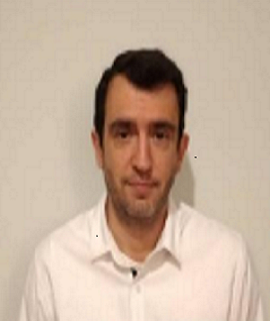
ISEP - School of Engineering
Portugal
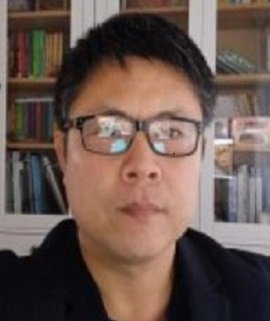
University of Hertfordshire
UK
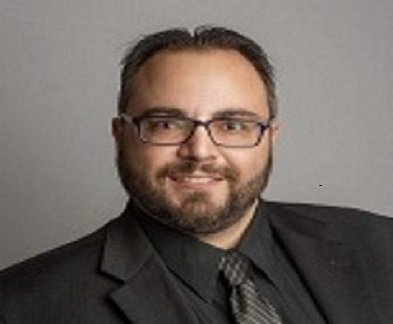
University at Buffalo
USA
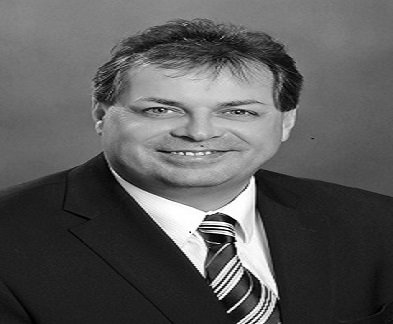
Kansas State University
USA
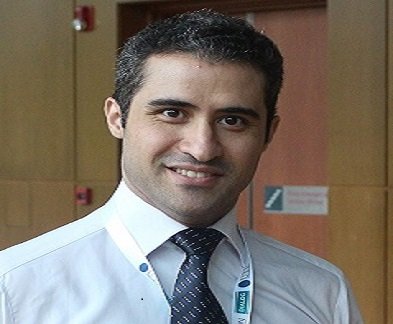
University of Wisconsin-Milwaukee
USA
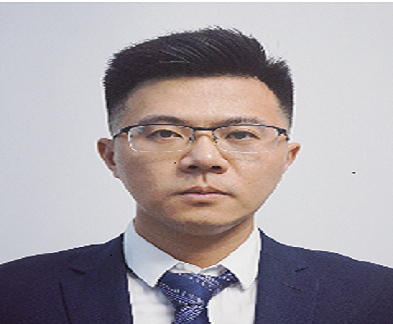
Dalian University of Technology
China
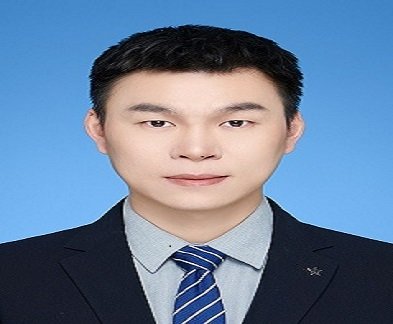
Northwestern Polytechnical University
China
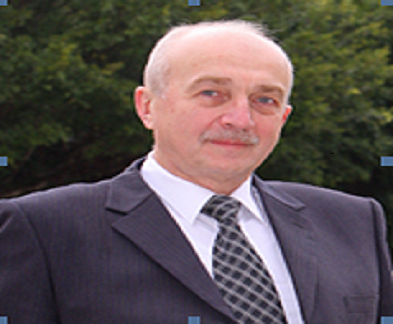
Hong Kong UniversityHong Kong
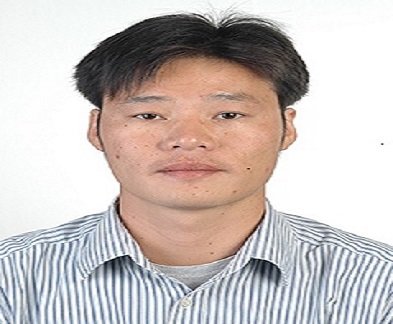
Huazhong university
China
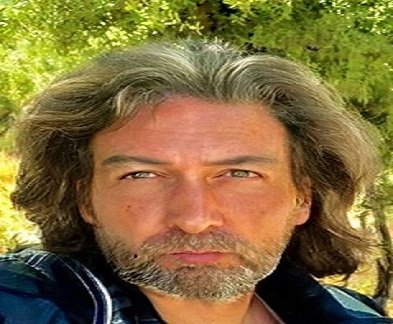
Chiang Mai University
Thailand
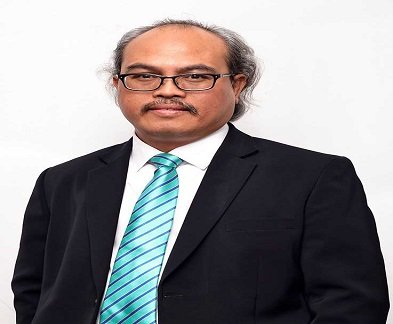
Universiti Malaysia Pahang
Malaysia
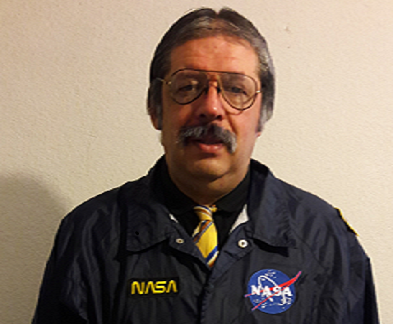
Mathematics Research Centre
Mexico
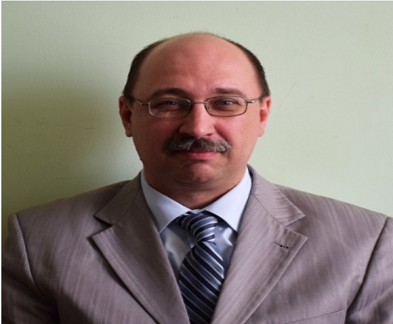
Samara National Research University
Russia
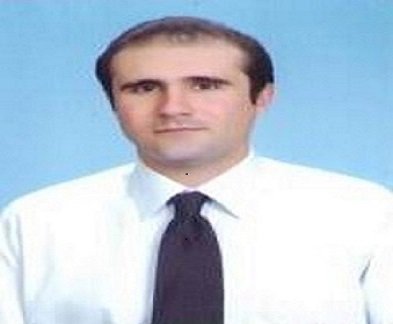
Igdir University
Turkey
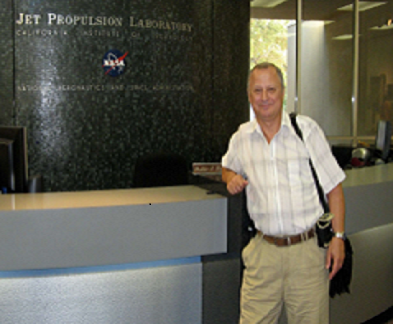
Head of Remote Sensing Laboratory
Russia
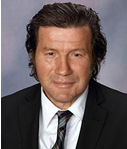
Professor Eduard Babulak is accomplished international scholar, researcher, consultant, educator, professional engineer and polyglot, with more than thirty years of experience. He served as Editor, reviewer, Conference Chair, has successfully published. He served as Chair of the IEEE Vancouver Ethics, Professional and Conference Committee. He was Invited Plenary & Keynote Speaker in Tokyo (2023), Oxford (2020 & 2023), University of Cambridge (2005& 2010), MIT (2005 & 2010), Yokohama National University & University of Electro Communications in Tokyo (2009 – 2010), Kyushu Institute of Technology (2016), Japan, Shanghai Jiao Tong University (2013),Sungkyunkwan University in Korea (2012– 2014),University of Surrey, Purdue University, Penn State, Graz University of Technology, Austria, Czech Technical University, and other prestigious academic institutions worldwide. His academic and engineering work was recognized internationally by the Engineering Council in UK, the European Federation of Engineers and credited by the Ontario Society of Professional Engineers and APEG in British Columbia in Canada. He was awarded higher postdoctoral degree DOCENT - Doctor of Science (D.Sc.) in the Czech Republic, Ph.D., M.Sc., and High National Certificate (HNC) diplomas in the United Kingdom, as well as, the Diploma Engineer (MSc and B.Sc. ) in Electrical Engineering in Slovakia. He is Fellow of the Royal Society RSA, London, UK; Chartered Fellow. Mentor and Member of the ELITE Group of the British Computer Society, London, UK; 2013-2014 Invited Panel Member for National Science Foundation, USA; Expert Consultant for HORIZON 2020 & CORDIS FP6 - FP7 European Commission, Brussellex, Belgium; Mentor and Senior Member of the IEEE and ACM,USA; Nominated Fellow of the Institution of Engineering and Technology, London, UK and Distinguished Member of the ACM, USA; Chartered Member of the IET, London, UK. He serves as the Editor-in-Chief, Associate Editor-in-Chief, Co-Editor, and Guest-Editor. He speaks16 languages and his biography was cited in the Cambridge Blue Book, Cambridge Index of Biographies, Stanford Who’s Who, and number of issues of Who’s Who in the World and America.
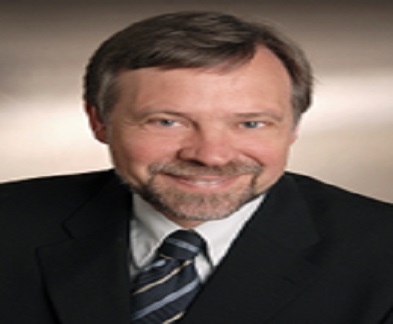
Prof. Dr. Schilling had in space industry responsibility in Earth observation and interplanetary satellites (such as HUYGENS to the Saturnian moon Titan and ROSETTA for exploration of comets), before he was appointed professor and chair for Robotics and Telematics at University Würzburg 2003- 2022. He is president of the research company „Center for Telematics (ZfT)“ and chairman of board in the company “S4 – Smart Small Satellite Systems GmbH”. His team built the first German pico-satellite UWE-1, launched 2005 to optimize Internet in space. He published more than 400 papers and received several awards, including the Walter-Reis-Award for Robotic Innovations 2008 (for research in mobile robotics) and 2012 (for medical robotics), top grants from the European Research Council ERC: 2012 an ERC Advanced Grant for research on control of networked distributed satellite systems and 2018 an ERC Synergy Grant for “CloudCT” to improve climate models by observations from a formation of 10 small satellites by computed tomography methods. He was awarded 2021 with the Eugen-Sänger-Medal from DGLR, 2022 with the Global AACII Award, 2023 with the Frank.J.Malina-medal of the International Astronautical Federation IAF for his contributions to technology progress in small satellite area. He is full member of the International Academy of Astronautics and was Consulting Professor at Stanford University 2002-2006.
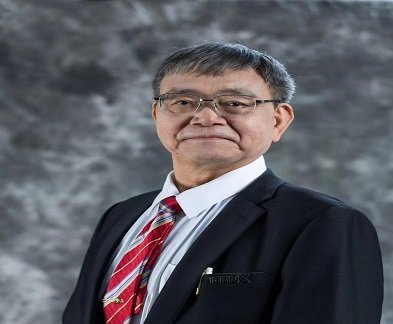
Professor Sam Zhang received his Ph.D. degree in Ceramics in 1991 from The University of Wisconsin-Madison, USA. In 2006 he was promoted to tenured full professor in Singapore Nanyang Technological University. In 2018 he established and served as Director of Centre for Advanced Thin Films and Devices in Southwest University, China. In 2023, he joined in the School of Aeronautics, Harbin Institute of Technology and also serves HIT Zhengzhou Research Institute (https://homepage.hit.edu.cn/samzhang). Prof. Zhang was elected as a Fellow of Royal Society of Chemistry (FRSC), a Fellow of Thin Films Society (FTFS) in 2018, and a Fellow of Institute of Materials, Minerals and Mining (FIoMMM) in 2007. Prof. Zhang was a Principal Editor for Journal of Materials Research (USA) for thin films and coating field (since 2003). Prof. Zhang has been serving the world’s first “Thin Films Society” (www.thinfilms.sg) as its founding and current president since 2009. Prof. Zhang has authored/edited 21 books published with CRC Press/Taylor & Francis. Currently, Prof. Zhang is working on a four-volume Materials for Energy Handbooks in Chinese to be published in 2024 by Chongqing University Press. Of these books, Materials Characterization Techniques has been adopted as textbook by more than 30 American and European universities alone as of October 2015. That book had also been translated into Chinese and published by China Science Publishing Co. in October 2010 and distributed nationwide in China (also available online at Amazon.cn). Prof. Zhang is also the Series Editor for Advances in Materials Science and Engineering Book Series published by CRC Press/Taylor & Francis. A full list of his books is at Amazon: https://www.amazon.com/-/e/B001JPBX42). Over the years, Prof. Zhang has authored/co-authored over 400 peer-reviewed international journal papers with h-index of 62 and total citation of over 13,500 times as of 29 May 2024 (https://publons.com/researcher/2817766/sam-zhang/). Details of Professor Zhang’s research and publications are easily accessible at http://homepage.hit.edu.cn/samzhang
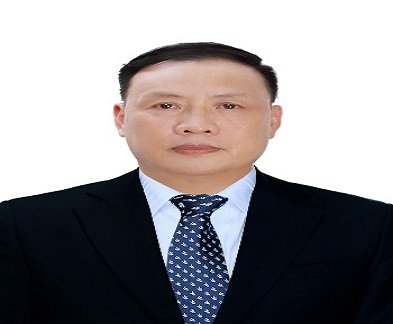
Professor Duc is the Vice-President of Vietnamese Association in Mechanics and a member of the Professor Election Council in Mechanics of Vietnam, the Head of Laboratory of Advanced Materials and Structures, the Dean of the Faculty of in Civil Engineering - VNU Hanoi, University of Engineering and Technology (UET). He also is the President of the network club about ensures the quality of higher education of Vietnam; Program Director of Civil Engineering Program of Vietnam-Japan University (VJU); Program Director of Automation and informatics Program of International School (IS), Vietnam National University, Hanoi. Professor Duc holds a Ph.D. in mathematics -physics from Moscow State University (1991) and a Doctor of Science degree (Dr. Habilitation) in Engineering from Russian Academy of Sciences (1997). He had been appointed to Associate Professor (2007) and Full Professor (2013) at Vietnam National University, Hanoi. Professor Duc has over 350 publications in which over 200 papers have appeared in numerous ISI (SCI, SCIE) journals. He is the member of Editorial Board of 10 ISI International journals. Last but not least, he has written 6 textbooks and monographs for the undergraduate and graduate programs in Vietnamese, Russian and English. Professor Nguyen Dinh Duc has been a foreign member of the Russian Academy of Natural Sciences (since 1999). He was a member of the Central Committee of the Vietnam Fatherland Front (1999-2004), the former Vice-President and Secretary general of Vietnam Science-Technical Association in Russia (1999-2001), former Vice President of Vietnamese Young Scientist Association in Vietnam (2004-2010), Vice President of the University of Engineering and Technology, VNU (2008-2012). Professor Duc has been awarded Silver Medal of Russian Academy of Natural Sciences for the Invention on The law-behavior of mechanical characteristic for three-phase composite 3Dm reinforced by spherical particles (in Russia, 1999) and the Third Prize of “Talented Vietnamese National Award ” (in Vietnam, 2008). Because of outstanding contributions to the national education and training career, professor Duc has received the VNU President’s merit of excellence awards in years 2006, 2009, 2011, 2013, 2014, 2015, 2016, 2019, 2020, 2021, 2022, 2023 and the Prime Minister’s merit of excellence award in 2009. Certificate of Merit granted by the Minister of Education of Vietnam, 2019,2022. He has been selected as one of the most outstanding people in Vietnam education system in 2015, President of Vietnam awarded 3-rd class Labour Medal in 2016, 2-nd class Labour Medal in 2022. Professor Nguyen Dinh Duc was announced by the US journal PLoS Biology to be in the list of the top 10,000 greatest influential scientists in the world in 2019, 2020, 2021, 2022, 2023 and ranking 85 in the field of Engineering in the world in 2023.
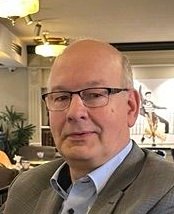
Dr. Detlef Hoyer (65) currently works as a Software-Developer living in Hamburg, Germany. He studied Physics earning a degree in magnetism and low temperature physics in 1986. Afterwards he made his doctorate 1992 in theoretical electrical engineering at TU Hamburg Harburg. In 1999 he published his first paper on embedding Maxwell's Equations of vacuum and Minkowski spacetime in a 5D Riemannian Space. 2017 he began working on solutions of Einstein's Equation in 5D for electrical monopoles and dipoles in 5D Kaluza Theory.
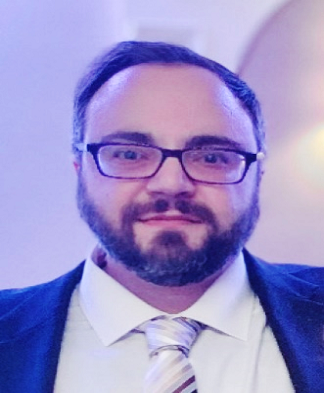
Panos Anastasopoulos is Associate Professor in the Department of Civil, Structural and Environmental Engineering at University at Buffalo, and has been the inaugural Stephen E. Still Chair of Transportation Engineering. He is also the Founder and Director of the Engineering Statistics and Econometrics Application (E-SEA) research lab, and Scientific Consultant for Inferenx Labs Inc. – a start-up focusing on transportation and infrastructure systems solutions. He has also served as Director of the Stephen Still Institute for Sustainable Transportation and Logistics (ISTL). He received his BSc from the Athens University of Economics and Business, and his MSc and PhD from Purdue University. His research interests include: safe mobility; transport economics; travel behavior; implications of transportation investments and emerging technologies; integration of human behavior with advanced air vehicles and automated/connected vehicles; urban air mobility; infrastructure and crisis management; policy and decision making; and computational tools (statistical and econometric modeling, machine learning, and artificial intelligence). In these areas, he has published over 200 papers, book chapters, and reports, and one textbook. He is Executive Associate Editor of Analytic Methods in Accident Research (ranked #1 Journal in Safety Research and Transportation by Scopus and Web-of-Science), and serves as Associate Editor and Editorial Board Member in several other prestigious journals. He is the former Chair of TRB’s Statistical and Econometric Methods Committee, and Vice Chair of the ASCE T&DI Economics and Finance Committee. He has been recognized as a Web of Science Highly Cited Researcher for his work during the last twelve years.
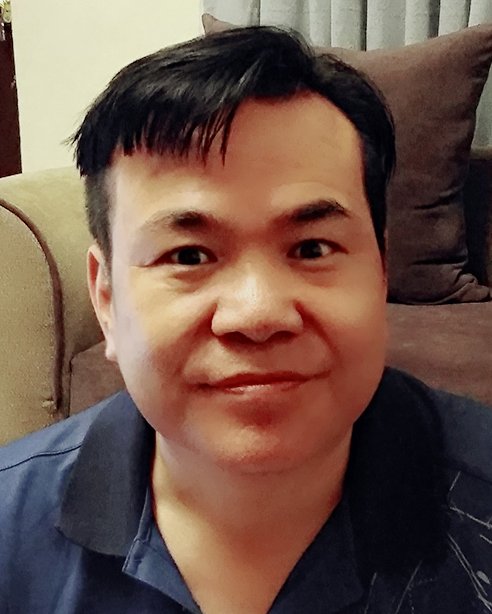
Seongwoo Woo, full time position. Dr. Woo has a BS and MS in Mechanical Engineering, and he has obtained PhD in Mechanical Engineering from Texas A&M. He majors in energy system such as HVAC and its heat transfer, optimal design and control of refrigerator, reliability design of thermal components, and failure Analysis of thermal components in marketplace using the Non-destructive such as SEM & XRAY. In 1992.03–1997 he worked in Agency for Defense Development, Chinhae, South Korea, where he has researcher in charge of Development of Naval weapon System. He was working as a Senior Reliability Engineer in Refrigerator Division, Digital Appliance, SAMSUNG Electronics. Now he is working as associate professor in mechanical department, Ethiopian Technical University.

Qiang Zhu, chair professor at the Department of Mechanical and Energy Engineering, Southern University of Science and Technology (SUSTech), China. Professor Zhuobtained a Dr.-Ing. from Universität Erlangen-Nürnberg, Germanyin 1994. He is a UKFIMMMFellow, director of Shenzhen Key Laboratory for Additive Manufacturing of High Performance Materials. He gives a number of invited speeches to internationally well-known academic conferences as well as universities and enterprises, more than 200publications, 2 academic books,over 60 patents. His current research interests are development of advance metallic materials (especially aluminum and super alloys), novel processing technologies of metels (especially additive manufacturing and semi solid processing), characterization of mechanical properties (especially creep and fatigue) and computing simulation.
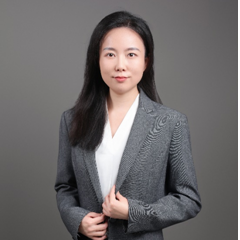
Xiufang Ren is currently an Associate Professor in the Department of Mathematics at Nanjing Agricultural University in China. Her research interest lies in applying mathematical theories to cutting-edge problems in natural sciences. Xiaoyu Ke is currently a graduate student in the School of Mathematics at Nanjing University in China.
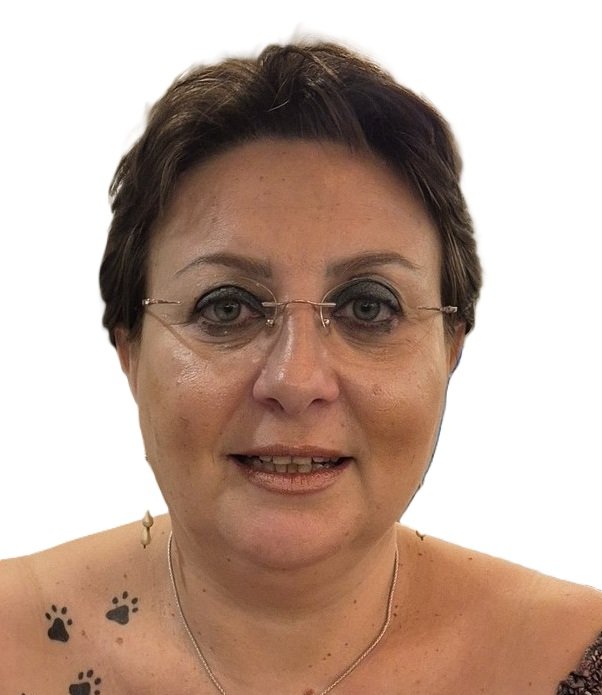
Prof. Dr. Ümit Deniz GÖKER, Former Sabbatical Fellow at the Astronomical Institute of Czech Academy of Sciences, Department of Solar Physics Ümit Deniz GÖKER received her Ph.D. on ‘Shock Wave Structures in Solar Plasma’ and attended a project on ‘The Design of Turbopumps Using Liquified Fuel and Cavitation Optimization’ in 2010 at the Ege University and İstanbul Technical University, respectively. She was a Postdoctoral Fellow at Bosphorus University between the years 2011-2017. She worked at the National Defense University, Air Force Academy, as an Associate Professor between the years 2018-2021 before she received her professorship status inNovember,2024. She was at the Czech Academy of Sciences, between the years 2022-2024 for Sabbatical Fellow. Her research interests include Solar Physics, Near-Space Physics, Plasma Physics, Climate Change, and Aeronautics and Astronautics Engineering. For more details please visit: https://cas-cz.academia.edu/ÜmitDenizGöker.
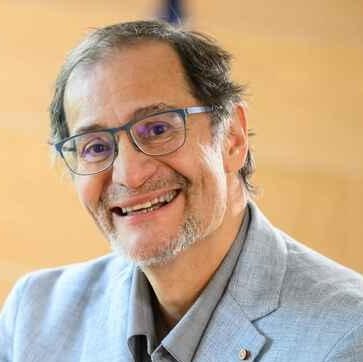
Sergio Montenegro was born in Guatemala. He has been Professor and Chair of Aerospace Information Technology at the University of Würzburg (Germany) since 2010. He develops control systems for satellites, launch vehicles, rovers, landers, drones, aircraft, underwater vehicles and more. His current research focus is on dependable systems, survival machines, ultra-high reliability. He has developed and maintains the real-time operating system RODOS, including its middleware, which provides transparent communication between software and hardware modules (it is also implemented in hardware), between modules running on the same computer, or on different computers in the same satellite/UAV, or between modules (applications) running on different satellites/UAVs, and even between satellites/UAV applications and ground segment applications. Now we are moving the same concepts to drones (UAVs) and networks of UAVs, and even to underwater autonomous vehicles. Previously: Fraunhofer Society (Berlin, Germany): Project Manager (100 different projects) and Research Coordinator. These projects focused on high performance computing and communications. DLR - Space Systems (Bremen, Germany): Head of the Avionics Systems Department. He built up this department and supported the establishment of the then new DLR Institute in Bremen. The focus of these projects was reliability and satellite design. He has published 4 books and much more than 300 papers about dependable control systems for avionics.
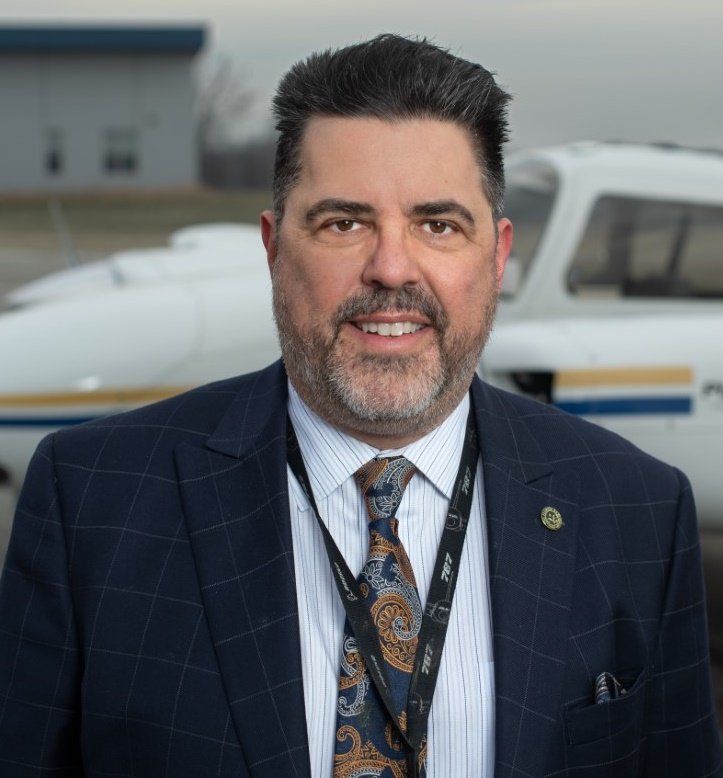
Jason Lorenzon, J.D. is lead faculty for the Unmanned Aircraft Systems Flight Operations program and is an FAA Certificated Airline Transport Pilot with multi-engine and instrument ratings. He also is an FAA Certified Flight Instructor, Instruments and Multi-Engine. He was one of the first pilot/lawyers to receive the Remote Pilot In Command sUAV FAA Certificate in Ohio. Mr. Lorenzon is a Board-Certified Specialist in Aviation Law, awarded by the Florida Bar in June 2021. He was also the recipient of the Outstanding Faculty Award from the Kent State College of Aeronautics and Engineering in 2021. Mr. Lorenzon serves as a Safety Lead for the FAA Safety Team program. The National Association of Flight Instructors has designated Mr. Lorenzon as a Master Certified Flight Instructor for the second time in February 2023. Mr. Lorenzon’s first passion was always aviation. When his parents would not let him achieve his dream of becoming a pilot, he would sneak to the Windsor Airport as a teenager and by the age of eighteen he received his Canadian Private Pilot’s "License." As only one college in Canada offered an aviation degree, Mr. Lorenzon followed his other passion of Political Science and Music at the University of Western Ontario. While there, he even petitioned unsuccessfully, for an Aviation Program. During his undergraduate years, he interned with the Ontario Minister of Transportation, the Honorable Bill Wrye. He was awarded two degrees in 1995, a Bachelor of Arts in Political Science and a Bachelor of Music (with distinction). Mr. Lorenzon continued his graduate studies at the Cleveland Institute of Music. Mr. Lorenzon is a graduate of the Cleveland State University Marshall College of Law and his Bar admissions include the State of Ohio, State of Florida, and the United States District Court for the Northern District of Ohio, Southern District of Ohio, Middle District of Florida, Southern District of Florida, and the Sixth Circuit Court Circuit of Appeals. While he attended Cleveland State, he worked full time and was managing editor of the Journal of Law and Health. When he can, Mr. Lorenzon generously volunteers his services to the community, and was honored for his work in foreclosure defense, when he received the “Volunteer of the Year for the Community Legal Services of Akron Award.” Additionally, in 2010, he was awarded the Community Service Award for Attorneys 40 & Under for District 11 by the Ohio State Bar Foundation and he was named a Rising Star by Ohio Super Lawyers for the area of immigration for 2011. He serves on the Aviation Law Committee and the Aviation Law Certification Committee of the Florida Bar. Mr. Lorenzon served as chair of the Aviation Law Committee of Ohio State Bar Association from 2016-2018 and then from 2021-2023. Currently, Mr. Lorenzon is currently an Associate Professor of Aeronautics. He recently served as Coordinator of the Aeronautics Program for the College of Aeronautics and Engineering at Kent State University until he was promoted to tenure track faculty position. He oversaw six undergraduate degree programs, and six minors. He teaches Aviation Law, Aviation Security, and Policy and regularly instructs as a Multi Engine Instructor for PROP majors at the Kent State Airport. He serves as Senior Attorney at Gertsburg Licata, LPA in Cleveland Ohio where he focuses his law practice on aviation law. He regularly flies a Diamond 40NG aircraft with his wife and his children who are all FAA Certificated Pilots.
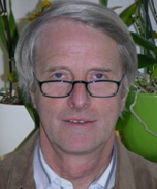
Born in Bad Berleburg/Germany. Medical studies in Munich and Giessen, exams and doctorate in 1971. Scientific assistant at the clinical centre of the Justus Liebig University at Giessen until 1978. Senior physician for nuclear medicine at the clinical centre in Hanau until 1985. Founder of the "International Institute for Experiential Medicine" www.iifeh.de ; Founder of the "Diagnostic Centre for Mineral Analysis and Spectroscopy DCMS. From 2011 to 2018 Head Physician of the Quantisana Health Centre for Holistic Diagnostics and Therapy in CH 9404 Rorschacherberg. Since 2018 Head of the HolisticCenter in CH 9030 Abtwil. Many oral and written publications in the field of complementary and energy medicine. Many videos on Youtube, Google and complementary portals. Reviewer of international journals. Co-founder and Deputy President of DGEIM (German Society for Energetic and Information Medicine, Stuttgart www.dgeim.de). Book author: Harmony is Life and Health of the Body, 1988; Medicine of the Sermon on the Mount, 1999 and 2009; Energy and Cosmos, 2008; Understanding Healing, 2014. https://www.ncbi.nlm.nih.gov/pubmed/?term=doepp+m www.drdoepp.org

Prof. Weiguo Liis currently the Vice Dean (in charge of work) and Doctoral Supervisor of the College of Aerospace Engineering at Chongqing University. He has been selected for the National High-Level Talent Program, the Ministry of Science and Technology's Leading Talents in Scientific and Technological Innovation for Young and Middle-aged People. He is also the president of the Chongqing Mechanics Society and the director of the Chongqing Key Laboratory of Mechanics of Heterogeneous Materialsanda Fellow of the International Association of Applied Mechanics.He holds concurrent positions as executive director of the council of the Chinese Society of Theoretical and Applied Mechanics, a committee member of the Solid Mechanics Professional Committee of the Chinese Society of Theoretical and Applied Mechanics, the Lunar Exploration Mission of the Sixth Academy of Aerospace, and the key areas of the Joint Fund for Basic Research on Large Aircraft. He leads several provincial and ministerial teams and serves as an editorial board member for multiple journals. His main research directions are mechanical/physical properties quantitative characterization methods, theories of strengthening and toughening, testing techniques and instrumentation development of materials under extreme conditions. He has published over 230 SCI papers and has been granted 22 invention patents.
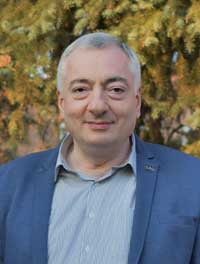
Dr. Areg Mickaelian (Byurakan Astrophysical Observatory (BAO), Armenia) b. 1962 in Yerevan, Armenia, PhD 1994 Leading Scientist and Head of Research Department, Byurakan Astrophysical Observatory (BAO) Director, Byurakan Astrophysical Observatory (BAO, 2017-) Director, International Astronomical Union (IAU) South West and Central Asian (2015-) Acting President, International Astronomical Union (IAU) Armenian National Committee for Astronomy (NCA) Acting President, Armenian Astronomical Society (ArAS, 2001-) Vice Chair, Euro-Asian Astronomical Society (EAAS, 2012-) Project Manager, Armenian Virtual Observatory (ArVO, 2005-) Executive Committee member, International Virtual Observatory Alliance (IVOA, 2005-) Steering Committee member, International Planetary Data Alliance (IPDA) Director, Byurakan International Summer Schools (BISS, 2006-) Research interests: astronomical surveys, blue stellar objects, QSOs and Seyfert galaxies, IR galaxies, X-ray sources, extragalactic radio sources, white dwarfs, cataclysmic variables, Virtual Observatories (VOs) Current Projects: BAO Research Department (2017-) Astronomical Surveys RA Science Committee Advanced Research Grant 2021-2026 Revelation of Early Stages of Galaxies Evolution by Means of Multiwavelength Study of Active Galaxies ANSEF grant 2022-2023 Search and studies of luminous X-ray galaxies COST action CA18104 2019-2023 Revealing the Milky Way with Gaia Academic Visits: Visiting Astronomer and Visiting Professor at Observatoire de Haute Provence (OHP, France), Observatoire de Lyon (France), Hamburger Sternwarte (HS, Germany), Sapienza Università di Roma (Italy), Cornell University (Ithaca, NY, USA), Leibniz-Intitut fur Astrophysik(AIP, Potsdam, Germany), AstronomischesRechen-Institut (ARI, Heidelberg, Germany), University of Naples Federico II (Italy), Institute de MécaniqueCéleste et de Calcul des Éphémérides (IMCCE, France), Observatoire de Paris-Meudon (OBSPM, France), Institute d’Astrophysique de Paris (IAP, France), LATMOS (UVSQ, France) Honours and Awards: World Summit Award (WSA) IT award for the best e-Science Project(DFBS, 2005) Republic of Armenia President’s Annual Prize in Physics (2020) University of Hawaii and Tel Aviv University Distinguished Visitors Awards (2015 and 2017) Top-100 Most Productive Scientists of Armenia Tigran Metz medal from Aspetats Academy of International Security (2017) Russian International Academy of Tourism medal (2019) Letters of Commendation from IAU/UNESCO (International Year of Astronomy, IYA-2009), Armenian National Academy of Sciences, Armenian Ministry of Education and Science, Armenian Ministry of Culture, Armenian Astronomical Society (ArAS) Publications: 425 publications according to Astrophysics Data System (ADS), including 168 papers refereed journals, 131 proceedings of meetings, 24 books and booklets, 17 papers in books, 22 electronic catalogs, etc. Review papers in Astronomy Reports, Astronomical and Astrophysical Transactions (A&ApTr), Iranian Journal of Astronomy and Astrophysics (IJAA), etc. Editing of a number of Proceedings of meetings published by Cambridge University Press (CUP), Astronomical Society of the Pacific (ASP), AracneEditrice (Rome, Italy), etc.
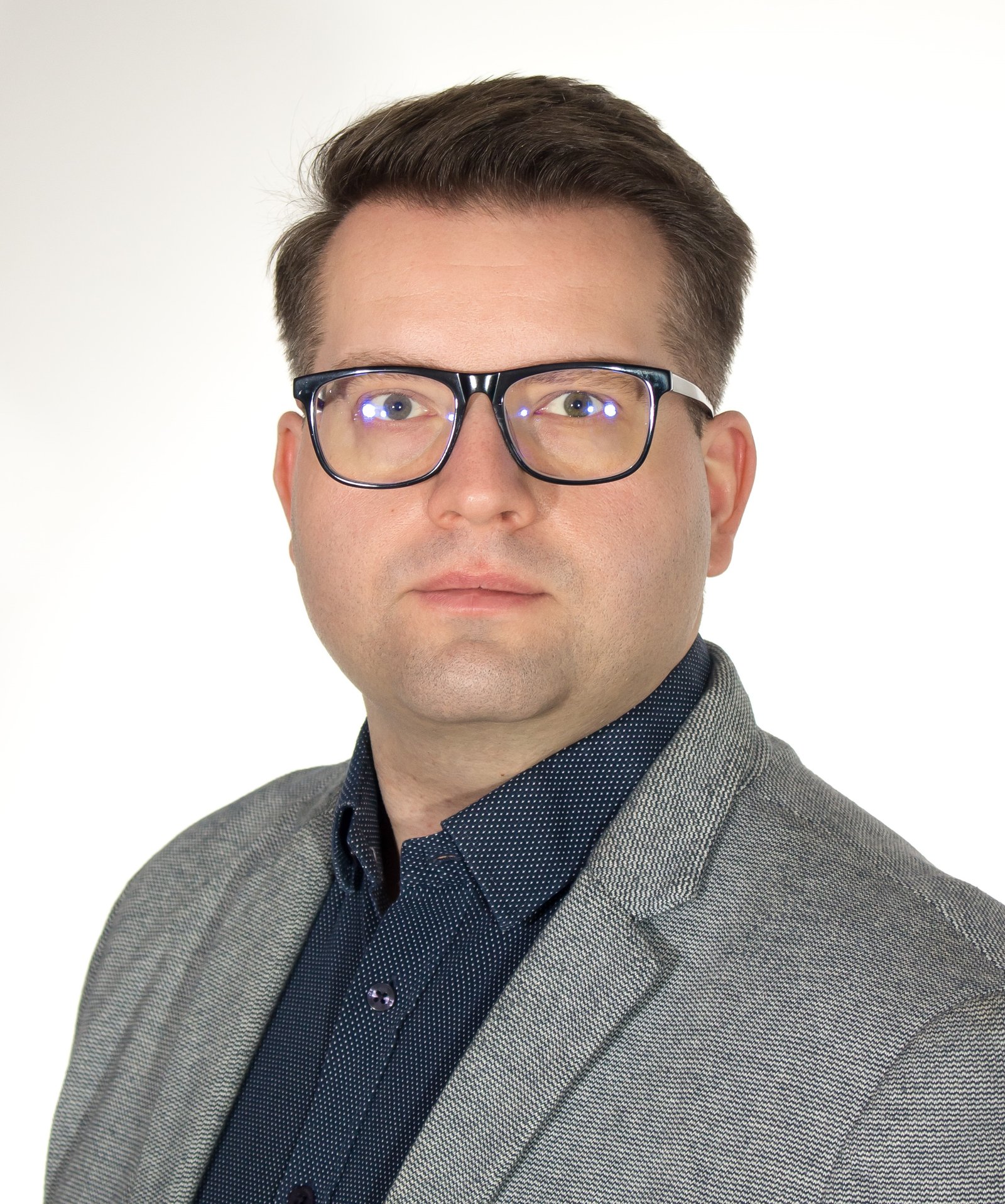
Will be update soon...
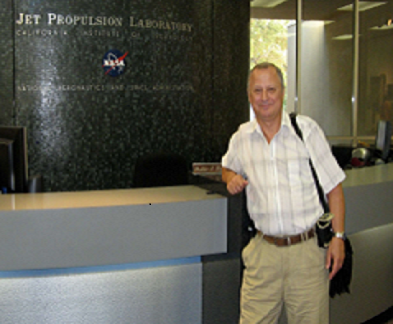
Sergey Ivashov, PhD, graduated from Space Research faculty, Moscow Institute of Physics & Technology, with honours in 1972; as post-graduate student he had successfully submitted the thesis for a PhD degree in 1975. He worked as a scientific researcher in rocket industry of the USSR in 1975-1977. Since 1977 up to 2000 he had been working in the Central Scientific and Research Institute of Radio & Electronic systems, Moscow, as a senior scientific fellow and thereafter he had been promoted for a head of Laboratory. From January 2001 up to February 2024 he was the head of the Remote Sensing Laboratory at the Bauman Moscow State Technical University, Moscow. His latest research relates to NDT&E of thermal insulation of rocket cryogenic fuel tanks by holographic radar. Other scientific interests are connected with holographic subsurface radar design and its applications for searching of bugging devices and civil construction engineering. The air reconnaissance of mine fields and development of radar sensors for mine’s detection related to humanitarian demining operations are also included in area of his scientific interests. His research also includes remote detection and diagnostics of human heartbeat and breathing for applications in security and medicine. This research is based on using of continues-wave radar in frequency band of 2-15 GHz.

Vladimir V. Tchernyi (Cherny) has Ph.D. and Dr.Sci. in Radiophysics including Quantum Radiophysics and he is Professor. He is a member of Laser Academy of Sciences of the Russian Federation, Academy of Engineering Sciences named after Nobel laureate A.M. Prokhorov, International Informatization Academy and International Academy of Energy and Information Sciences. He is a member of the Board of the Russian Agency for the Development of the Information Society (RARIO). He used to work as a research scientist at the Kotelnikov Institute of Radio-Engineering and Electronics and at the Institute of General Physics Institute, both with the Russian Academy of Sciences, Moscow. He was a head of the Department of Radiophysics of Volgograd State University in Russia and he was a research scientist at the University of California at Berkeley. Now he is a Director of the Modern Science Institute, SAIBR in Moscow where he is doing research in the area of advance science and innovative technology. He was lecturing in the USA and other countries of Europe, Africa and Asia. He presented talks at NASA Marshall Space Flight Center in Huntsville of Alabama, Astronomy Institute in Honolulu of Hawaii, USA National Bureau of Standards in Washington, University of California at Berkeley, George Washington University in Washington, University of California in San Diego, Astronomy Institute of University of Argentina at La Plata, University of Alexandria Egypt, South Africa, etc. During 2019-2023 he presented talks at ISSM Xi’an, China 2019, Inter. Conf. Phys. & Networks, Houston 2019, 235 AAS Meeting 2020, 43rd COSPAR Scientific Assembly 2021, XXXIV URSI GASS 2021, EPSC2021, 53rd DPS AAS Meeting 2021, 12M-S3 2021, 238th AAS Meeting 2021, 53LPSC 2022, 44th COSPAR Scientific Assembly, 13M-S3 2022, 14M-S3 2023, IAU 2024 Cape Town RSA etc. Tchernyi V. published more than 100 research articles in the area of Saturn’s rings origin, oceanography, laser technology, microelectronics and nanotechnology, integrated optics and laser in medicine. Recently he is busy with his latest discovery devoted to the mechanism of the origin of Saturn rings. Please, see recent articles: Tchernyi V.V., Kapranov S.V. J.C. Maxwell had almost solved the dense rings origin problem but in his time, there was no data on particles. Letter to the Editor. COSPAR Space Research Today. April 2024. No. 2019. P. 80-85 Tchernyi V.V., Kapranov S.V., Belodedov M.V. The repulsion force between ice bodies in dense rings of Saturn, J.C. Maxwell proposed in 1856. Advances in Theoretical & Computational Physics. 2024. V. 7. No. 3. P. 1-3

Dr. Koen Bertels, researcher at FPGAHouse, Switzerland As a professor of Computer Engineering at the Delft University of Technology (NL), Koen Bertels’ scientific research started focusing on quantum computing and, more specifically, on the definition and implementation of a scalable quantum computer system for any scientific and operational field. He has now also moved to DNA data storage for not only genetic data but also any digital product that exists. His citation index is 46. QC-computing - After starting 12 years ago on quantum computing at Delft University of Technology (NL), he has now moved almost exclusively to the use of perfect qubits. Such qubits have no decoherence and errors in the quantum gates performed on the qubits, implemented in whatever qubit technology. The notion of the perfect qubit, called PISQ or Perfect (qubits) Intermediate Scale Quantum is an older, theoretical concept, but it allows one to think about the algorithmic solutions one wants to study in any field without having to worry about returning to the ground state and all kinds of errors in the quantum calculation. PISQ is complementary to the NISQ approach, where the emphasis is on all the physics-based challenges and that is what the word Noisy represents. DNA-data storage - A second line of closely related research that he is starting, is based on DNA-data storage. DNA, the foundation of the genetic structure of all living organisms, is being considered by both the pharmaceutical industry and universities as a storage device for any kind of existing information. The new objective is to combine quantum computing, classical data and DNA-data storage technology.

Jie Tian is currently working toward the Ph.D. degree in fluid machinery and engineering in College of Energy and Power Engineering at Nanjing University of Aeronautics and Astronautics. He received his bachelor’s degree from Nanjing University of Aeronautics and Astronautics. Hisresearch interest is the experimental testing techniques in hypersonic intake and exhaust system, including the Particle Image Velocimetry and the PIV-based reconstruction measurement techniques. Jinglei Xu is a professor at Nanjing University of Aeronautics and Astronautics.He obtained his Ph.D. in Fluid Machinery and Engineering from Xi'an Jiaotong University in 1999.He has received several prestigious awards such as the second prize for National Science and Technology Progress of China, the gold medal at the Geneva International Invention Exhibition, etc.His research interests include engine internal flow aerodynamics, propulsion systems for hypersonic aircraft, wind tunnel experimental technology, etc. Hehas published more than 180 papers as the first or corresponding author, including over 70 SCI papers and 2 monographs. He has been the member of the Engine Soft Science Professional Committee of the Chinese Aeronautical Society, the chair of the 4th International Symposium of Thermal-Fluid Dynamics (ISTFD).
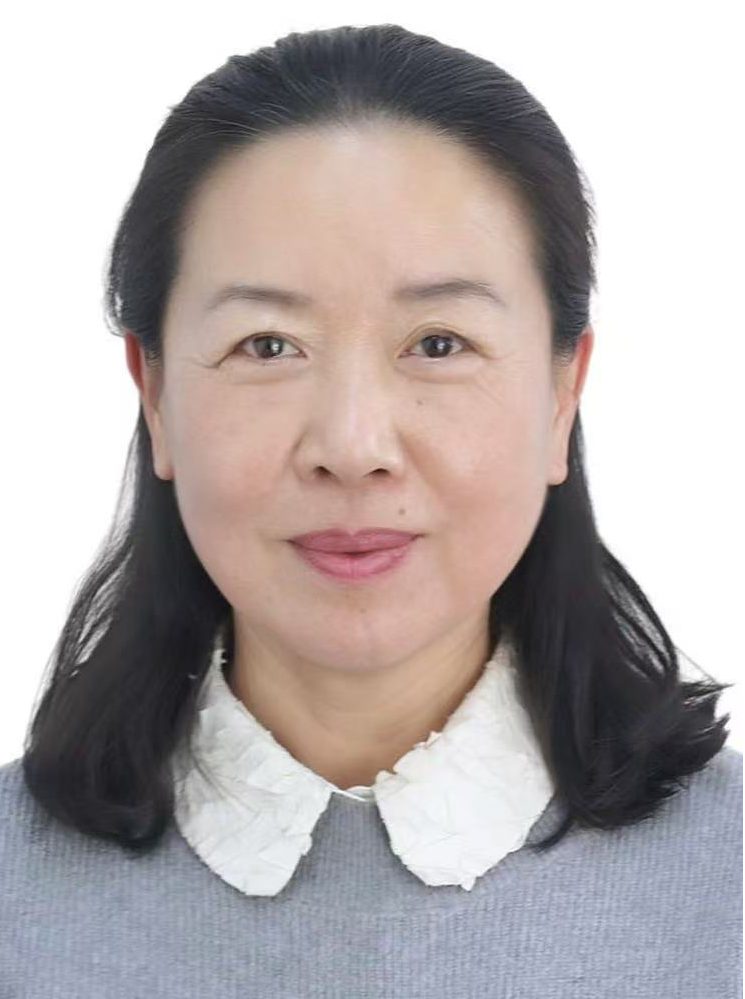
Professor Ying Li is the vice director of Corrosion Center, Institute of Metal Research, Chinese Academy of Sciences. She awarded Ph. D. degree in Corrosion and Protection from the Institute of Metal Research, Chinese Academy of Sciences in1998. Her research interests include the electrochemical corrosion performance of advanced metals and fabrication of smart multifunction organic coating. Prof. Li has authored and co-authored more than 300 international scientific publications. She is also the director of Electrochemical Corrosion and Measurement Committee, China Society for Corrosion and Protection. She serves as the editorial board member of the Journal of Corrosion Science and Protection Technology , Corrosion Communication.
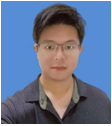
Jiaxin Cai received his Ph.D. degree in Information and Computation Science from Sun Yat-Sen University in 2014. He also received his M.S. degree and B.Sc. degree in Bio-medical Engineering from Southern Medical University in 2011 and 2008 respectively. Currently, he is an associate professor in the School of Mathematics and Statistics at Xiamen University of Technology. He has authored over 40 peer-reviewed papers at academic journals and conferences. His current research interests include machine learning, computer vision and bio-medical engineering.
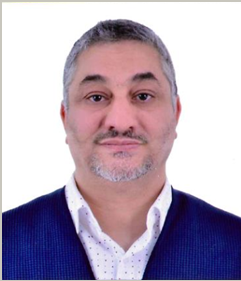
Dr. Omer Ali Elsayed Elmatbagi is an Associate Professor at the International University of Rabat, specializing in aerospace and aeronautical engineering. He holds a PhD in Mechanical Engineering from the International Islamic University Malaysia, an MSc in Aerospace Engineering from University Putra Malaysia, and a BSc in Mechanical Engineering from the Technical University of Budapest. His research includes aircraft wake vortex characterization, aerodynamics and aeroacoustics of rotors, and bio-inspired aerodynamics. He has led projects on multi-rotor eVTOL aircraft and bio-inspired airfoils. Dr. Elmatbagi has published in high-impact journals and presented at international conferences. He holds patents for vehicle engine oil quality determination and toroidal propeller design. He has received several research awards, including a Bronze Medal from the International Islamic University Malaysia. Dr. Elmatbagi is an active reviewer for prestigious journals and participates in various academic workshops. His technical skills include ANSYS, AutoCAD, and Matlab.
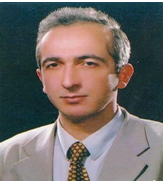
Abdullah Aydın is an Professor of Science/Chemistry Education at Kırşehir Ahi Evran University, Turkey. He received his Master'sin AnalyticalChemistry fromUludağUniversity in 1995. He received his Ph.D. in science / chemistry education from Gazi University in 2004. He is a member of the editorial team of 74 international journals (disciplinary and interdisciplinary). He has 11 excellence awards [Excellence in reviewing]. He has outstanding contribution award [Journal of Cleaner Prudiction - ELSEVIER]. He has committee memberships (SciTech Nanosciences 2019 & Nanotech-2021 & GECAET-22 & Material Science 2024 & Functional Materials 2024). He has national [Ahi Evran University, "Academic Performance Award", The Scientific and Technological Research Council of Turkey, “Broadcast award”], and international [VDGOOD Technology Factory,“Lifetime Achievement Award”] awards. He has scientific memberships ESERA, IJDS, ACSE, Turkish Chemica lSociety, VDGOOD Technology Factory. The focus of his research is the Analytical Chemistry, trace element analysis, materials and processes, disciplinary and interdisciplinary.

He received her B.Sc. degree in Mechanical Engineering in Erciyes University, Turkey. He received her M.Sc. and PhD. degree in Mechanical Engineering in Erciyes University. He is the head of Wind Engineering and Aerodynamics Research-WEAR Group.
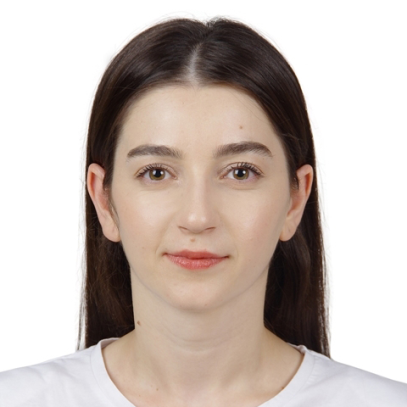
She received her B.Sc. degree in Energy Systems Engineering from Faculty of Technology, Gazi University, Turkey in 2018. She received her M.Sc. degree in Energy Systems Engineering from Faculty of Technology, Gazi University, Turkey in 2023. She is currently a PhD student and working as a Research Assistant in Erciyes University.
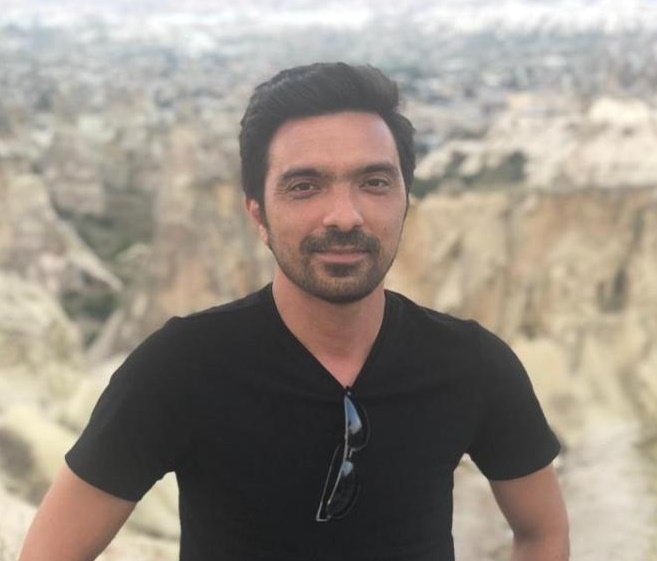
He received her B.Sc. degree in Mechanical Engineering fromFaculty of Engineering, Erciyes, Turkey in 2013. He completed MSc and PhD degrees in Energy Systems Engineering. He is currently lecturer in Erciyes University.
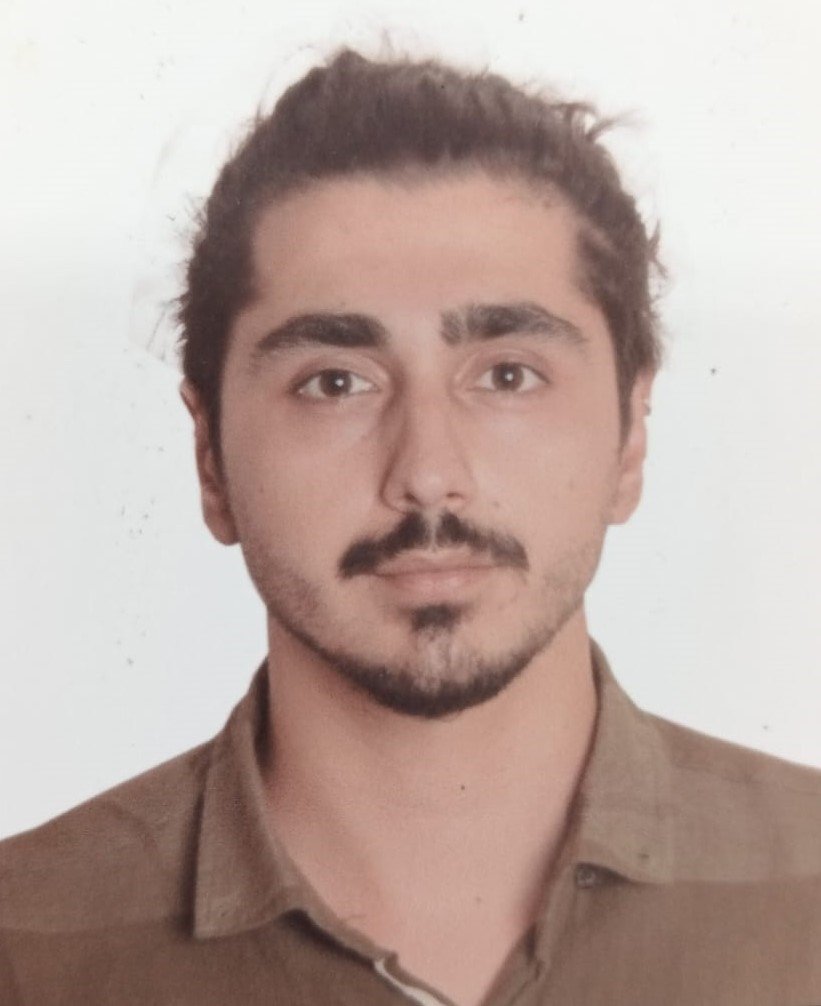
He received her B.Sc. degree in Energy Systems Engineering fromFaculty of Engineering, Erciyes, Turkey in 2023. He is currently a M.Sc. student in Erciyes University.
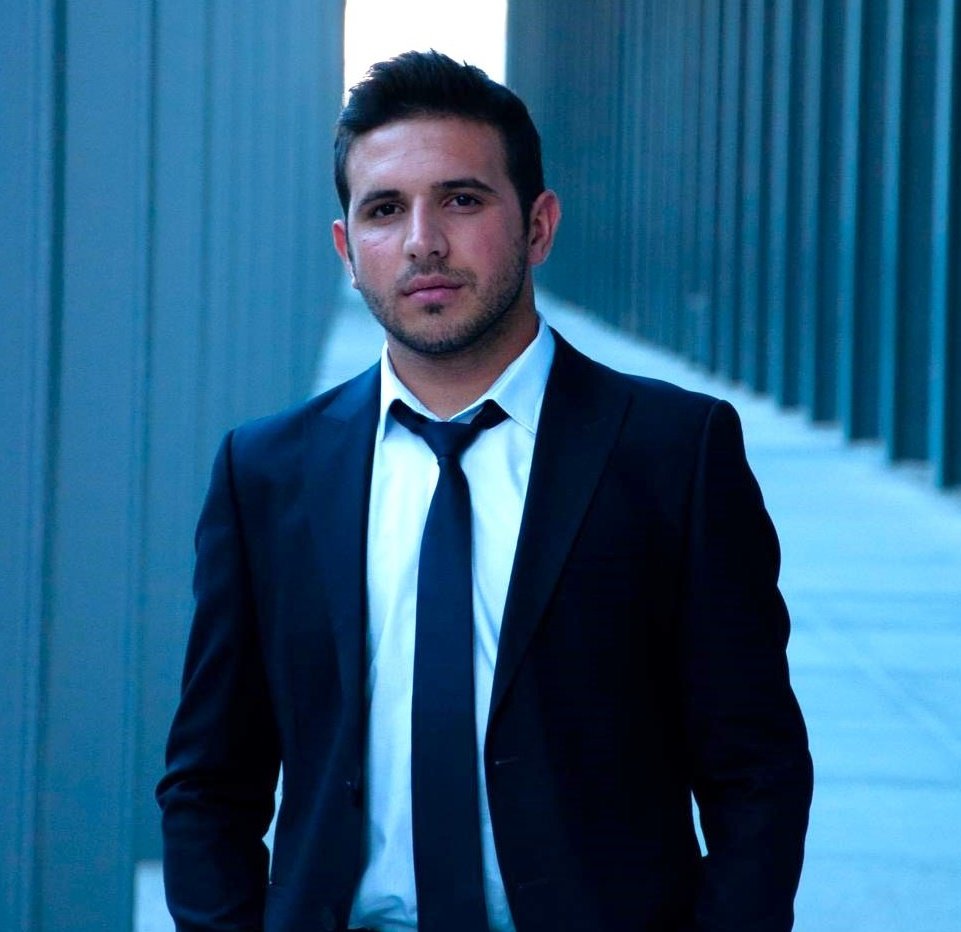
He received her B.Sc. degree in Mechanical Engineering in Erciyes University from Faculty of Engineering, Abdullah Gül University, Turkey in 2023. He is currently a M.Sc. student and working as a Research Assistant in Erciyes University.

Will be update soon...

Will be update soon...

Will be update soon...

Will be update soon...

Will be update soon...

Guangzhen Bao received the M.E. degree in opticalengineering from the Harbin Institute of Technology(HIT), Harbin, China, in 2022. Currently he ispursuing the Ph.D. degree in HIT. His researchinterests include remote sensing image acquisitionand processing, optical target detection and identification and space object detection and perception.

Jingxiao Wen, Master Student. He is a current graduate master student at Beihang University, specializing in reliability and systems engineering. His research interests include the application of deep learning in aviation risk prediction.

Ottavio Pedretti, PhD Candidate. OttavioPedretti is an architect and Ph.D. candidate in the Architectural, Urban, and Interior Design program at Politecnico di Milano. His Ph.D. research, funded by the PNRR program, focuses on Urban Air Mobility under the project “Pioneering Infrastructure. Experimentation on Design Strategies for Urban Air Mobility in Italy.” Since 2018, he has collaborated with SANAA (Tokyo), Onsitestudio (Milan), and ION Fund (Milan). His early work explored infrastructure architecture, particularly metro stations, focusing on enhancing the user experience through thoughtful design, optimizing spatial layouts, and improving navigability and comfort. He has been a tutor in Design Studios at Politecnico di Milano since 2020. In 2019, he graduated with a thesis examining abandoned industrial buildings and their socio-architectural dynamics in India.
Zuzanna Kunicka-Kowalska holds a PhD in Mechanical Engineering and is an academic and research staff member at Kazimierz Wielki University in Bydgoszcz. She completed her master's and bachelor's degrees at Gdańsk University of Technology and earned her doctorate from the Faculty of Power and Aeronautical Engineering at Warsaw University of Technology. Her research focuses on fluid mechanics, insect motion analysis, and fluid-structure interactions. Zuzanna has authored numerous scientific publications in international journals and has presented her work at prestigious conferences. She has also been awarded multiple prizes for her innovative research projects, including the invention of "AirliQ – a hybrid flow tunnel." She has served as a project leader and has been involved in numerous grants. Her teaching experience includes courses in mathematics, mechanics, and computational methods, as well as the modernization of university curricula. Dr. Kunicka-Kowalska leads the GEKON Bionics Scientific Circle, which aims to promote knowledge and develop innovative projects in the fields of bionics and biomimetic engineering.
Choose Your Pricing That Fits You Best